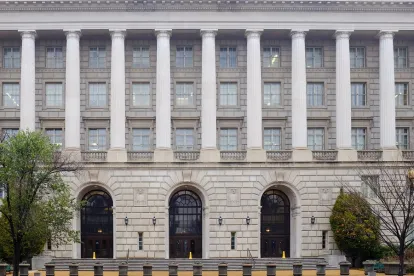The IRS will focus on private benefit, private inurement, payroll tax, and other compliance issues associated with exempt organizations in upcoming year.
On September 28, 2017, the Internal Revenue Service’s (IRS’s) Tax Exempt and Government Entities (TE/GE) Division released its work plan for fiscal year 2018. The plan summarizes the division’s accomplishments in fiscal year 2017, and outlines the following areas of focus in fiscal year 2018.
Compliance Strategies
Compliance strategies will focus on supporting organizations, previous for-profit entities, and private benefit and inurement.
-
Supporting organizations: The IRS will focus on examining supporting organizations that file Forms 990-N.
-
Previous for-profit entities: The IRS will focus on examining organizations that operated as for-profit entities prior to their conversion to Section 501(c)(3) status.
-
Private benefit and inurement: The IRS will focus on examining organizations with indicators of potential private benefit or inurement to individuals or private entities.
Compliance strategies will also focus on complex worker classification and complex fringe benefit issues in coordination with Federal, State, and Local/Employment Tax (FSL/ET).
-
Early retirement incentive plans: The IRS will focus on examining entities that provide cash and other options to employees as incentives for early retirement.
-
Form W-2/1099 matches: The IRS will focus on examining entities that should have reported Form 1099 payments as wages subject to FICA tax and income tax withholding.
-
FUTA tax: The IRS will focus on examining Section 501(c)(3) organizations that handle payroll for a related Section 501(c)(4) organization without paying the FUTA tax on the Section 501(c)(4) organization’s employees.
-
Notice CP 2100–backup withholding: The IRS will focus on examining entities that failed to comply with backup withholding requirements due to mismatched and/or missing Taxpayer Identification Numbers on Forms 1099.
Compliance Checks
Compliance checks will focus on wage reporting issues, unrelated business income tax issues, and financial assistance policies.
-
The IRS will continue to conduct compliance checks as a tool to help educate exempt organizations about their recordkeeping requirements and encourage voluntary compliance with the tax laws, with a focus on the following:
-
Tax-exempt employers with discrepancies between Forms W-2 and Forms 941/944.
-
Tax-exempt organizations that fail to file the required Forms 940.
-
Section 501(c)(7) organizations that reported investment income on Forms 990/990-EZ but didn’t file Forms 990-T.
-
Tax-exempt hospitals that didn’t comply with the financial assistance policy requirement under Section 501(r)(4).
-
Continued Focus on a Data-Driven Approach
The IRS will continue its focus on taking a data-driven approach to examinations alongside referrals, claims, and other casework.
-
The IRS will continue to improve the Form 990, 990-EZ, and 990-PF compliance models and test a new compliance model for Form 5227, Split Interest Trust Information Return.
-
The IRS will continue to examine private foundations based on potential anomalies found on their Form 990-PF filings.
-
The IRS will continue to identify returns with the highest risk of employment tax noncompliance (e.g., zero to minimal Medicare and/or Social Security wages paid compared to Form 1099 distributions).
-
The IRS will continue to pursue referrals alleging noncompliance; address requests for refunds, credits, and adjustments; conduct postdetermination compliance of entities that filed a Form 1023-EZ or received a streamlined review of Form 1023; and examine a statistical sample of returns to ensure comprehensive compliance.
Additional Issue Snapshots and Other Publications
-
IRS Exempt Organizations (EO) plans to provide knowledge management tools that cover additional new technical tax topics such as gaming, unrelated business income (and related exemption issues), Section 501(r), organizational test requirements, and employment tax.
-
EO will continue to move technical tax information to the Audit Technique Guides (ATGs) for Exempt Organizations.
Forms 1023-EZ and 8976 to Be Revised
-
Form 1023-EZ will be revised to require activity descriptions and additional information on gross receipts, asset thresholds, and foundation classification. The IRS expects that the average processing time will increase as a result of these changes. It also plans to continue to conduct predetermination reviews of a statistical sample of applications and analyze the data to mitigate risks and identify opportunities for improvement.
-
The IRS will enhance the platform for submitting Form 8976, Notice of Intent to Operate Under Section 501(c)(4), to reduce the number of rejections for nonpayment of user fees.
2017 Accomplishments and Additional Resources
The work plan also highlights changes that EO implemented during fiscal year 2017. These changes include modifications to Form 1023-EZ, the development of a Compliance, Planning & Classification Unit, and the consolidation of Indian Tribal Governments and Tax Exempt Bonds into one function, as well as moving Federal, State, and Local Governments (FSLG) to EO.
Finally, during fiscal year 2017, EO continued publishing “issue snapshots” and “issue podcasts” as additional resources. Snapshots focus on a specific technical tax topic. The snapshots include summaries of key case law, rulings, and other authorities; analysis; and issue spotting and audit tips. Podcasts are audio presentations that summarize certain areas of EO practice and are accompanied by written materials. The first two podcasts concern 501(c)(3) denials and commercial activities that further a nonexempt purpose.




 />i
/>i
